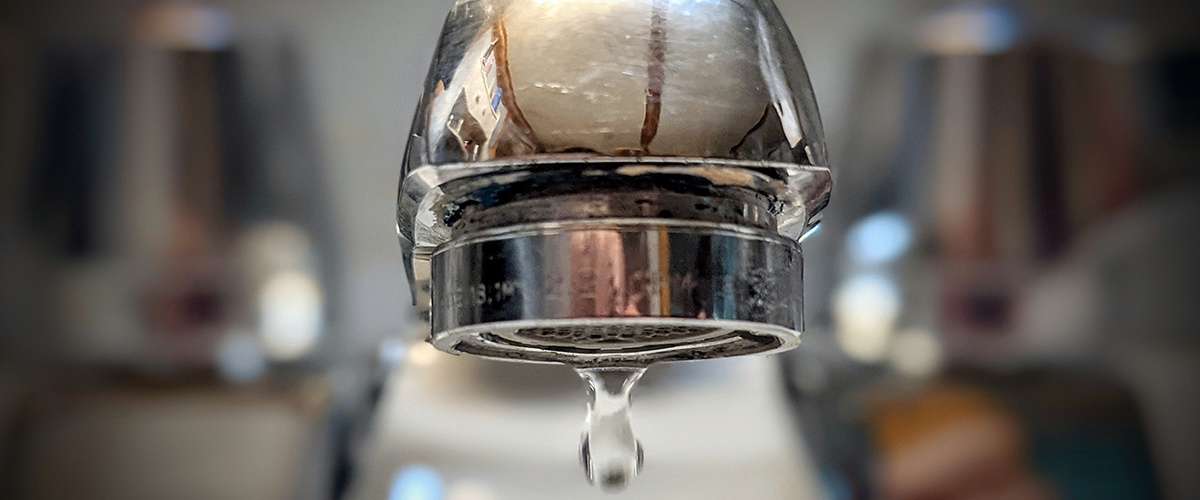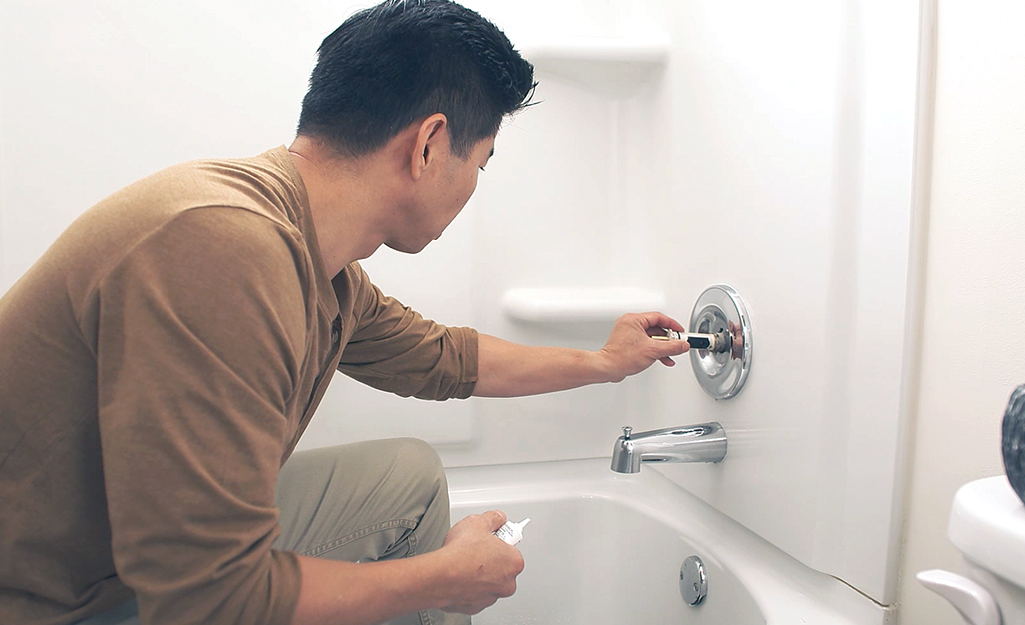The Significance of Correcting a Broken Faucet
The Significance of Correcting a Broken Faucet
Blog Article
This article below on the subject of Should I Repair or Replace a Leaky Faucet? is relatively remarkable. Give it a go and make your own results.

Leaking faucets could seem like a small trouble, yet their impact exceeds just the inconvenience of the noise. From wasting water to sustaining unneeded economic prices and wellness dangers, disregarding a trickling tap can bring about different effects. In this article, we'll look into why it's critical to resolve this common household problem promptly and properly.
Wastefulness of Water
Environmental Impact
Trickling taps contribute dramatically to water wastefulness. According to the Environmental Protection Agency (EPA), a single faucet trickling at one drip per secondly can lose greater than 3,000 gallons of water per year. This not only stress water sources yet also influences ecosystems and wildlife based on them.
Step-by-Step Overview to Repairing a Dripping Tap
Tools Needed
Prior to attempting to fix a trickling faucet, collect the needed devices, consisting of a flexible wrench, screwdrivers, substitute parts (such as washers or cartridges), and plumber's tape.
Typical Tap Issues and Their Solutions
Recognize the kind of faucet and the particular problem causing the drip. Usual troubles include worn-out washers, rusty valve seats, or faulty O-rings. Describe producer guidelines or on the internet tutorials for detailed advice on repairs.
Financial Costs
Raised Water Bills
Past the environmental influence, dripping taps can blow up water costs substantially. The built up wastage gradually equates into greater utility costs, which might have been prevented with timely repair work.
Potential Home Damages
Additionally, extended trickling can bring about harm to fixtures and surface areas bordering the faucet. Water buildup can create discoloration, deterioration, and also structural issues if left unattended, causing extra repair prices.
Health Concerns
Mold and Mold Development
The continuous existence of dampness from a dripping faucet produces a suitable atmosphere for mold and mildew and mold growth. These fungi not just compromise indoor air high quality however likewise posture health dangers, particularly for people with respiratory conditions or allergic reactions.
Waterborne Diseases
Stagnant water in leaking taps can end up being a breeding ground for bacteria and other pathogens, increasing the risk of waterborne diseases. Contaminants such as Legionella bacteria flourish in stagnant water, potentially bring about major diseases when consumed or breathed in.
Do it yourself vs. Specialist Repair
Benefits and drawbacks of Do It Yourself Fixing
While some may attempt to repair a leaking tap themselves, DIY repair services include their own collection of obstacles. Without correct understanding and tools, DIY attempts can exacerbate the problem or result in incomplete repair services, lengthening the problem.
Advantages of Working With a Specialist Plumber
Hiring a professional plumber ensures that the underlying cause of the dripping tap is attended to efficiently. Plumbings have the knowledge and equipment to identify and repair tap concerns effectively, conserving time and decreasing the threat of more damage.
Environmental Obligation
Private Contribution to Conservation
Taking responsibility for dealing with dripping taps straightens with broader initiatives towards water preservation and environmental sustainability. Every individual's activities collectively make a significant influence on protecting priceless resources.
Sustainable Living Practices
By focusing on punctual repair work and taking on water-saving habits, people add to sustainable living methods that profit both present and future generations.
Safety nets
Regular Upkeep Tips
To stop dripping faucets, execute routine upkeep such as cleansing aerators, examining for leakages, and changing damaged components quickly. Additionally, consider setting up water-saving tools or updating to more effective fixtures.
Relevance of Prompt Repair Works
Attending to leaking faucets as quickly as they're observed avoids further water waste and prospective damage, eventually conserving both water and money in the long run.
Impact on Home Value
Perception of Well-Maintained Building
Keeping a residential or commercial property in good condition, including addressing upkeep concerns like trickling faucets, boosts its perceived value and value among possible purchasers or lessees.
Impact on Resale Worth
Qualities with well-maintained plumbing fixtures, consisting of taps, command greater resale values in the real estate market. Dealing with leaking taps can add to a favorable perception during home assessments and settlements.
Conclusion
Attending to a leaking tap exceeds simple benefit; it's a necessary step towards preserving water, decreasing monetary expenses, and safeguarding health and residential or commercial property. Whether via DIY repair services or professional help, doing something about it to repair leaking taps is a little yet impactful way to advertise liable stewardship of sources and contribute to a much healthier, more sustainable future.
How to Fix a Leaky Faucet: Step-by-Step Repair Guide
A leaky faucet may seem like a simple annoyance, but if it's not fixed promptly, that leak could cost hundreds to potentially thousands. From water damage to mold, mildew, and high water bills, even a tiny leak can be catastrophic if left unattended. Damage like this can even affect the overall value of your home, so it's important to take the right approach for leaky faucet repair. You may need the help of a plumber in some cases, but we've got a few tips you can try on how to fix a leaky faucet before calling the pros.
Four Faucet Types
When you're learning how to fix a leaky faucet, the first step is knowing what kind of faucet you're working with! There are four common types.
Cartridge Faucets
Cartridge faucets come in one- or two-handled varieties. In one-handled cartridge faucets, hot and cold water combines in a single cartridge. In the two-handled versions, hot and cold water are controlled separately and mixed in the faucet.
Ball Faucets
Ball faucets have a single lever you push up and down to adjust the pressure and rotate to change the temperature. A slotted metal ball controls the amount of water allowed into the spout.
Compression Washer Faucets
They're the oldest type of faucet, but they're still used in many homes — especially older ones. Compression faucets have two separate handles that, when turned, raise or lower the washer that seals a water valve. This valve stops water from flowing through the faucet when it is turned off.
Disc Faucets
Disc faucets rarely need to be repaired due to their maintenance-free design. The water flow is controlled by two discs — the upper one raises and lowers against a fixed lower disc, creating a watertight seal. If your disc faucet starts leaking, you may need to replace the seals or clean residue buildup from the inlets.
Fixing a Leaky Faucet
Step 1: Turn Off the Water
Whether you're learning how to fix a leaky bathtub faucet or how to fix a leaky kitchen faucet, always turn off the water supply to your working area when you're fixing a leak. The last thing you want is a flood added to your list of things to fix.
Look for the shutoff valves below your sink or around the tub and turn them clockwise to stop the water flow. If your faucet doesn't have shutoff valves, you may need to turn off the water for the whole house. Check to make sure it's off by turning the faucet on. If nothing comes out, you're ready to start the repair.
Step 2: Take Apart the Faucet
How you disassemble your faucet depends on the type of fixture you have. You can use a flathead screwdriver to remove the caps on top of the handle or handles for cartridge and compression faucets. Inside, you should see handle screws. Unscrew these with a screwdriver to remove the handle.
Disc- and ball-style faucets will typically have an inlet screw near the handle, and removing that will reveal the interior of the faucet.
Detach the Valve Stem
For cartridge- and compression-style faucets, you'll see the inner valve stem or cartridge once you remove the faucet handles. If you have a compression faucet, unscrew the brass valve stem. If you have a cartridge faucet, pull out the cartridge. If your cartridge has been in place for a while, it may require some tools or extra force to remove it due to mineral deposits.
Examine and Replace Parts
Once you've removed the parts, check them out to confirm what needs to be replaced. You may see corroded rubber washers, O-rings, stems, or cartridges. On a ball-style faucet, check the seats and springs for damage.
If you need to repair a leaky disc faucet, check the inlet and seals on the lower disc.
Once you determine what parts must be replaced, visit your local hardware store. Bring the damaged parts with you to ensure you can purchase the correct components to replace them.
Clean Valves and Faucet Cavity
If you've removed a stem or cartridge, you may notice mineral buildup in the faucet's threads. Use white vinegar to clean the valve seat by soaking it for a few minutes, then scrub it away with a soft toothbrush and rinse with warm water. You can also clean the interior of the faucet in the same way.
Reassemble the Faucet
Once your faucet is cleaned and the required parts have been replaced, it's time to reassemble it. Put the pieces back together and slowly turn the water supply back on. Doing this slowly is crucial because too much initial water pressure can damage the new hardware you've just installed.
https://homewarranty.firstam.com/blog/how-to-fix-leaky-faucet

As a passionate person who reads about Why Is It Important To Fix Your Leaking Tap/Faucet?, I imagined sharing that piece of content was a smart idea. Do you know about somebody who is occupied with the niche? Do not hesitate to share it. Kudos for your time. Return soon.
Report this page